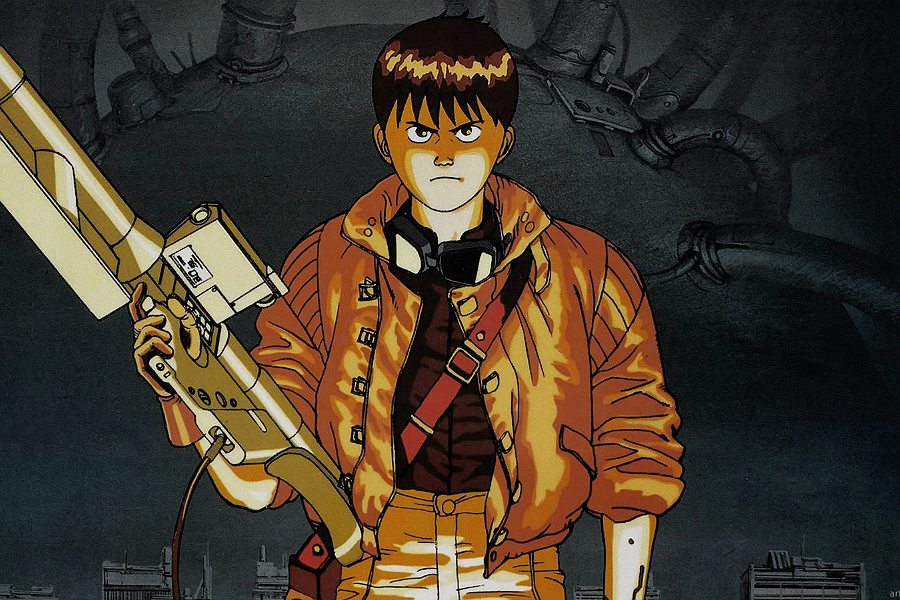Akira at 25

This year sees landmark science-fiction anime Akira celebrate its 25th anniversary. What is the key to its longevity?
Tokyo, 1988. The city, seemingly deserted except for a few stray cars, is wiped out by what appears to be a huge nuclear blast. Flash forward to neo-Tokyo, 2019, to a city beset by terrorism, delinquent and dangerous biker gangs and misrule, all set against a cyber-punk back drop.
This is Akira, directed by Katsuhiro Otomo, adapted from his epic 1980 manga of the same name. What starts as a fairly typical (albeit aesthetically stunning) take on dystopian tropes quickly morphs into something more significant altogether; informed in part by the horrors of Hiroshima and Nagasaki, while referencing 2001: A Space Odyssey and Blade Runner, Akira put to bed the idea that anime is just another word for cartoon.
Its world is one of paranoia, ennui and government conspiracy, a nightmare vision of life following World War III – all of which serves to elevate the story, making Akira grown up, high-concept stuff, helping to break manga and anime in the west along the way, where previously its foothold seemed uncertain at best.
The narrative is driven along by members of the Capsules biker gang (or Bōsōzoku), friends Tetsuo and (the gang’s leader) Kaneda, but it’s the shadowy government conspiracy aspect – which they are quickly drawn into – that underpins the themes of this landmark film. Enter the wizened and grey-skinned preternatural ‘children’ known as The Espers (or The Numbers), the enhanced subjects/victims of administration-sponsored psionic testing.
It is when Tetsuo crashes into one of the Espers that things start to get interesting, moving beyond the so far seemingly unrelated set-pieces that go to make up the opening quarter of an hour or so of the action; the eventual result/revelation being that he too has huge – near limitless, in fact – untapped psychic potential (more of which later).
But for all the top brass plotting, anti-government resistance cells and spectacular (un-CG aided) pyrotechnics, what Akira’s success really hangs on is its emotional core; unlike myriad other anime intended for a mature audience, it never forgets the viewer. Nowhere is this truer than in the case of Tetsuo and Kaneda – the dynamic between the pair means that however alien the futuristic post World War III setting may potentially feel, it stops short of infringing on the believability of the complicated – and therefore real – emotions at stake.
This dynamic, as with their friendship, quickly shifts following the onset of Tetsuo’s remarkable telekinetic abilities – his discovery of these god-like powers, having previously spent his life on the receiving end of bullies or in the protective shadow of gang-leader Kaneda, means bad news for lots of people. This is especially true in the case of his erstwhile guardian, who he finds no longer wants or needs.
Their prior relationship, rather than allowing Kaneda a degree of goodwill or bartering power, results only in bitterness in the increasingly warped and power-crazed mind of Tetsuo; eventually his need to exercise his newfound strength is manifested in awesome and catastrophic displays of power.
Wherein lies Tetsuo’s tragedy: too many of his formative years spent cast in the role of victim mean that, when finally granted the potency to escape this trap, he turns bully himself. There are few traditional ‘goodies’ and ‘baddies’ here, just different contexts inhabited by characters with edges, whose lives have uncovered dark sides to go with the light.
It will be interesting to see whether the long-rumoured (and almost equally long-delayed) live action Hollywood remake will be able to resist its pathological inclination to steer clear of such grey areas in favour of a cut and dried black and white approach (thus rendering it simultaneously all the more palatable to the execs while infinitely more hum-drum to audiences).
Until such a time arrives (if at all – all signs suggest it’s in development purgatory) when we are forced to find out, take heart from the knowledge that Akira, this triumph of style as well as substance, is as influential and impressive as it ever was.
Akira screens Saturday 13th July 9pm @ FACT





